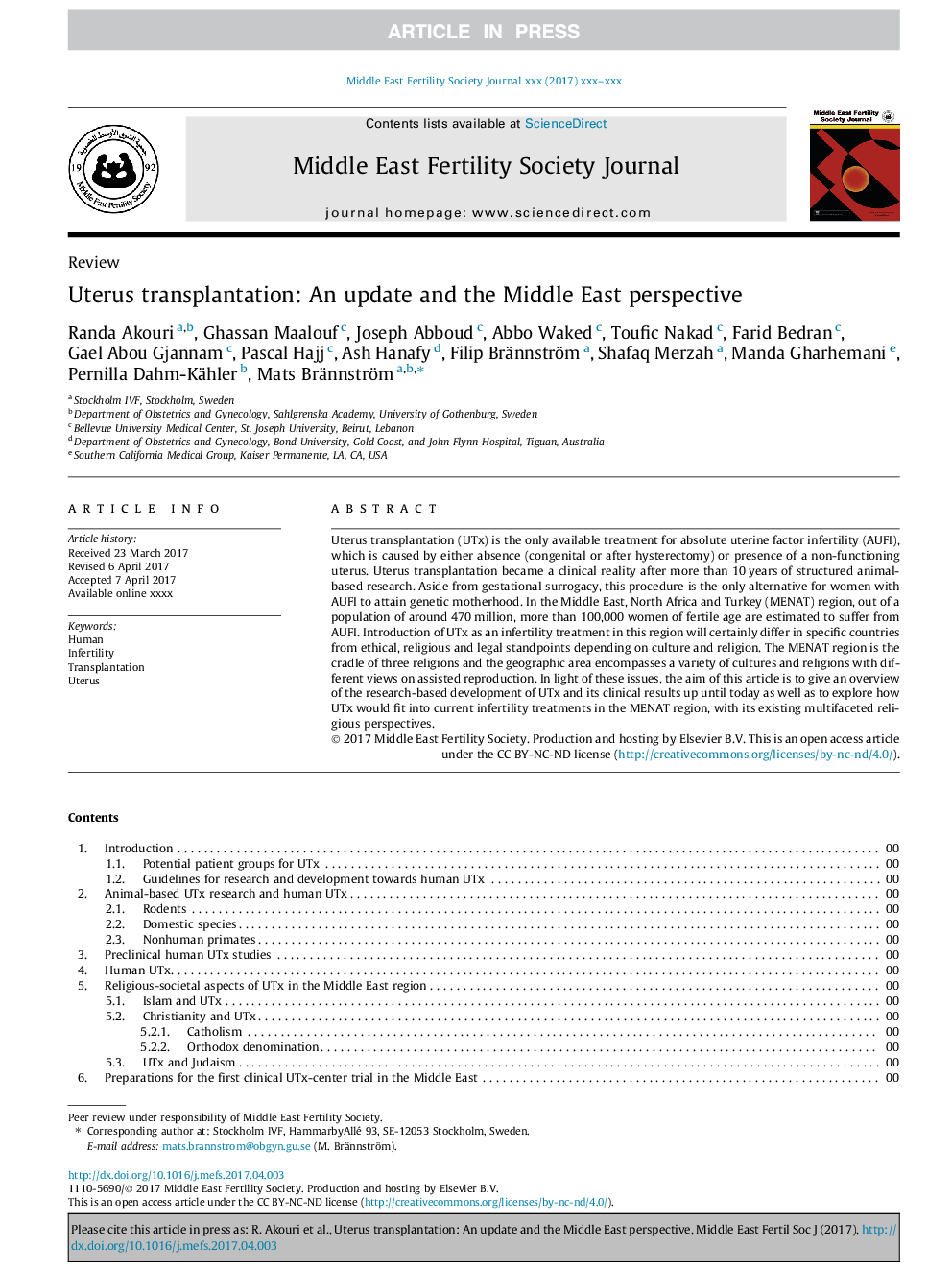| Article ID | Journal | Published Year | Pages | File Type |
|---|---|---|---|---|
| 8783264 | Middle East Fertility Society Journal | 2017 | 7 Pages |
Abstract
Uterus transplantation (UTx) is the only available treatment for absolute uterine factor infertility (AUFI), which is caused by either absence (congenital or after hysterectomy) or presence of a non-functioning uterus. Uterus transplantation became a clinical reality after more than 10Â years of structured animal-based research. Aside from gestational surrogacy, this procedure is the only alternative for women with AUFI to attain genetic motherhood. In the Middle East, North Africa and Turkey (MENAT) region, out of a population of around 470Â million, more than 100,000 women of fertile age are estimated to suffer from AUFI. Introduction of UTx as an infertility treatment in this region will certainly differ in specific countries from ethical, religious and legal standpoints depending on culture and religion. The MENAT region is the cradle of three religions and the geographic area encompasses a variety of cultures and religions with different views on assisted reproduction. In light of these issues, the aim of this article is to give an overview of the research-based development of UTx and its clinical results up until today as well as to explore how UTx would fit into current infertility treatments in the MENAT region, with its existing multifaceted religious perspectives.
Related Topics
Health Sciences
Medicine and Dentistry
Obstetrics, Gynecology and Women's Health
Authors
Randa Akouri, Ghassan Maalouf, Joseph Abboud, Abbo Waked, Toufic Nakad, Farid Bedran, Gael Abou Gjannam, Pascal Hajj, Ash Hanafy, Filip Brännström, Shafaq Merzah, Manda Gharhemani, Pernilla Dahm-Kähler, Mats Brännström,
